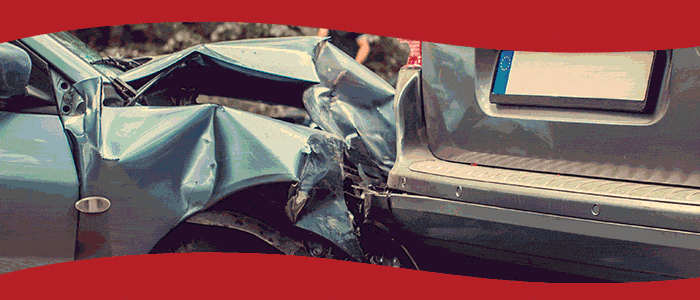In today’s evolving transport industry, fleet operations face various challenges that demand a strategic approach. Understanding why claims management is fundamentally different from repair management is critical, while the two processes may seem related at first, they serve very different purposes.
In exploring the key differences between the two, it becomes clear that focusing on repair management is essential for getting vehicles back on the road both safely and swiftly as we cover how industry-leading repair management services can help facilitate this process.
What is Claims Management?
Claims management is a broad, complex process that involves a wide range of activities beyond just the repair of the vehicle. It encompasses handling various aspects such as credit hire, personal injury claims, and uninsured loss recovery (ULR).
Claims management is more about managing the overall aftermath of an accident, including the financial and legal implications, rather than focusing solely on the vehicle. While all aspects of claims management are essential to any accident, it is pivotal that the core objective of getting the vehicle repaired and the customer back on the road is prioritised.
Advertisement
What is Repair Management?
Alternatively, repair management, zeroes in on the asset: the vehicle. It’s a specialised process that centres on the actual repair of the vehicle, where the primary goal is to ensure that it is repaired to the highest safety and quality standards, using the correct methods and materials.
This process is focused on precision and speed, involving the selection of the most suitable repair shop, monitoring the repair process, and maintaining tight control over costs and timelines.
What’s Most Important About Repair Management
The most critical aspect of repair management is getting the vehicle back on the road as safely and quickly as possible. This involves:
- Executing quality repairs: Ensuring all repairs meet stringent safety standards, using the best methods and materials.
- Speed and efficiency: Deploying vehicles to the best repair shops and closely monitoring the repair process to help minimise vehicle downtime.
- Concentrating on the customer: Ensuring their repair experience is completed without any distraction so the customer can be mobile as early as possible.
- Effective cost control: Tight management of repair costs ensures that expenses are kept in check without compromising on quality.
Why is Repair Management Important?
Effective repair management is a learned skill, not a standardised service. Tailoring processes to meet the unique needs of each client helps alleviate the burden on fleet managers and insurance professionals, allowing them to focus on what matters most: their customers and operations. Successful repair management is characterised by several key principles:
- A completely customer-centric approach: Prioritising the customer’s repair experience to ensure they receive their vehicle back in top condition as quickly and safely as possible.
- Bespoke solutions: Recognising that every client has different needs and customising services to meet those specific requirements.
- Using technology to support the human touch: Combining digital and people-first approaches to ensure smooth operations while streamlining processes.
- Continual cross-examination: Monitoring repair requirements, costs, times, and part delays to ensure repairs are done correctly and efficiently.
- Reporting the facts: Developing detailed management information reporting based on client requirements, including customer satisfaction and performance metrics.
- Continuous monitoring: Not just managing repairs but interrogating every aspect of the process to ensure everything is done correctly, including managing costs, timelines, and part delays.
Complete Vehicle Support (CVS) embodies these principles, offering tailored repair management solutions that enable clients to enhance efficiency and maintain high-quality standards in their operations.
Industry-Leading Repair Management
While both claims management and repair management are essential components of post-accident processes, it’s important to recognise their differences. For claims management, CVS can provide First Notice of Loss (FNOL), full claims capture, third-party capture, and mobility solutions. In terms of repair management, CVS offers solutions such as finding local repairers, generating estimates, and validating repair costs through a skilled team of specialists.
CVS knows that repair management is a top priority for fleet managers and insurance professionals aiming to minimise vehicle downtime and control costs. Therefore, partnering with an experienced provider ensures vehicle repairs are swift, safe, and to the highest standards.
Our Repair Management Services
Our repair management services are delivered through a nationwide network and fully contracted supply chain, including over 140 independent repairer centres that have been carefully selected and strategically placed across the UK.
Advertisement
Each centre possesses car, commercial, HGV, and EV capabilities and holds level 2.2 Institute of Motor Industry (IMI) training. Together, offering mobile and smart repair services, full visibility into repair progression, and a minimum three-year guarantee on all repairs.
Thanks to this network, fast and accurate estimations can be provided, as well as complete off-road management with leading average repair and invoice costs.
Focus on What Matters
The main reason many businesses choose CVS is we take care of the details, allowing you to focus on your customers and business needs first. With over 14 years of experience, CVS has established itself as the go-to provider for insurers, brokers, corporate fleets, and third-party administrators.
CVS offers the service you need, delivered the way you want, with enhanced controls and reporting throughout—simple.
Reach out today to experience our services for yourself.
For more information, contact Charlotte Simonek at: [email protected] or 07792 732566.



















